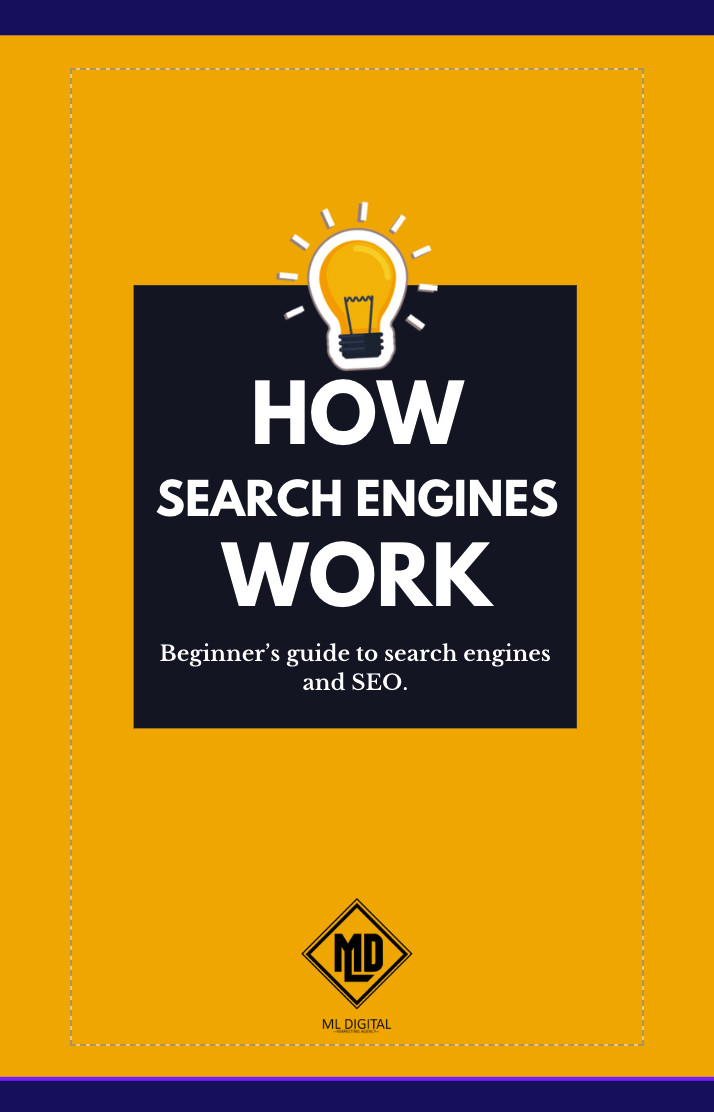The Foundation of Online Success
In today’s digital-first world, where almost every customer journey begins with a search engine query, understanding SEO (Search Engine Optimization) is essential. At its core, SEO is the art and science of improving a website’s visibility in search engine results. This means when potential customers search for products, services, or information related to your business, a well-optimized website ensures you’re one of the first they find.
Why Visibility Matters
Search engines like Google process billions of searches daily, and studies show that the majority of users never scroll past the first page. If your business isn’t ranking high, you’re essentially invisible to your audience. Organic search traffic—visitors who find your site through unpaid search results—acts as a critical driver of online visibility, bringing in high-intent users who are actively looking for solutions.
Why SEO is More Important Than Ever
The digital landscape is evolving rapidly:
- Consumer Behavior: People rely heavily on online research before making purchasing decisions, even for local or offline businesses.
- Cost-Effectiveness: Unlike paid ads that stop delivering results as soon as you stop funding them, SEO is a sustainable, long-term strategy. It keeps working for your business 24/7, bringing in traffic without ongoing ad spend.
The Big Picture: Why Businesses Need SEO
SEO isn’t just a tool—it’s a necessity. It boosts your visibility, attracts high-quality traffic, builds trust and credibility, and lays the foundation for long-term growth. In an increasingly competitive online world, SEO is your ticket to standing out and staying ahead.
In essence, investing in SEO is investing in your business’s future, ensuring that you not only survive but thrive in the digital age.
The Core Benefits of SEO: Unlocking Your Business’s Digital Potential
SEO is more than just a marketing tactic—it’s a powerful strategy that brings a multitude of benefits to businesses. Here’s how the importance SEO can transform your online presence:
A. Enhanced Online Visibility
- Why First-Page Rankings Matter: Studies consistently show that most users don’t venture past the first page of search results. If you’re not on that coveted first page, your visibility is severely limited.
- Brand Discovery Through Targeted Keywords: By ranking higher for the keywords that matter most to your audience, SEO puts your business front and center. This means more opportunities for potential customers to discover your brand when they’re actively searching for solutions like yours.
B. Increased Website Traffic
- Organic Traffic vs. Paid Ads: SEO drives organic traffic, meaning visitors come to your site because they found you through search engines—not because you paid for clicks. This reduces your dependency on costly ads, allowing you to invest in sustainable growth.
- Search Intent: SEO focuses on the intent behind search queries, ensuring you attract the right visitors—those actively looking for the products or services you offer. This results in more relevant traffic, increasing the likelihood of conversions.
C. Better User Experience
- Mobile-Friendliness and Speed: SEO isn’t just about keywords. It ensures your website is mobile-friendly, loads quickly, and is easy to navigate. These factors are crucial for providing a seamless user experience, especially with the rise of mobile searches.
- A Ranking Factor: Search engines like Google prioritize websites that offer superior user experiences. If your site is slow, hard to navigate, or not mobile-friendly, it can harm your rankings, making SEO crucial for both visibility and usability.
D. Credibility and Trust
- Perception of Authority: Websites that rank higher in search results are often perceived as more credible and trustworthy. This is because users generally trust search engines to direct them to the most authoritative sources.
- Building Domain Authority: SEO helps establish your domain authority over time by earning high-quality backlinks, creating valuable content, and improving user engagement—all of which signal to search engines that your site is a trusted resource.
E. Cost-Effectiveness
- SEO vs. PPC: Unlike paid advertising (PPC), which requires continuous investment, SEO delivers long-term, sustainable results. Once your site ranks higher, it keeps driving traffic without ongoing costs, making it a cost-effective solution.
- Long-Term ROI: While SEO requires an initial investment in optimization, the long-term return on investment (ROI) is significant, as sustained organic traffic brings continuous growth and visibility without the need for regular ad spend.
F. Competitive Edge
- Standing Out in Crowded Markets: In competitive industries, SEO helps businesses break through the noise. By targeting the right keywords, optimizing on-page content, and building quality backlinks, businesses can outshine their competitors.
- Real-World Success Stories: Many brands have seen exponential growth by investing in robust SEO strategies. For example, businesses focusing on niche keywords or local SEO have seen increased visibility and higher conversion rates, proving the power of SEO in today’s digital marketplace.
In sum, the core benefits of SEO go beyond simply improving rankings—they enhance visibility, drive relevant traffic, improve user experience, establish trust, and provide long-term, cost-effective growth. By investing in SEO, businesses position themselves for lasting success in an increasingly digital world.
Key Components of SEO: The Building Blocks of Online Success
SEO involves several key components that help a website rank higher, attract more traffic, and achieve business goals. Here’s a breakdown of the essential elements of a strong SEO strategy.
A. On-Page SEO
- Keyword Research and Optimization: Select the right keywords based on what your audience is searching for, and optimize meta tags, headers, and content to naturally incorporate them.
- High-Quality, Keyword-Rich Content: Create well-researched, informative content that answers audience questions. Quality content not only satisfies search engines but also engages visitors, increasing your chances of ranking.
B. Off-Page SEO
- Building Backlinks: High-authority backlinks signal trust to search engines, improving your rankings.
- Social Signals and External Mentions: Social media interactions and external mentions help build your online reputation, which also impacts SEO.
C. Technical SEO
- Site Speed, Mobile Usability, and HTTPS: A fast, mobile-friendly website with secure HTTPS is critical for both user experience and rankings.
- Structured Data and Crawlability: Properly structured data and crawlable pages help search engines understand your content, improving indexing and visibility.
D. Local SEO
- Google My Business and Location-Based Strategies: Optimizing for local searches is essential for businesses serving specific areas. Google My Business, location-specific content, and local keywords help your business show up in relevant searches.
- Why It’s Crucial for Small Businesses: Local SEO ensures small businesses are visible in local searches and on Google Maps, helping attract nearby customers.
E. Content Marketing
- SEO and Content Working Together: SEO and content marketing complement each other. Creating blogs, videos, and infographics around target keywords helps boost site visibility and engagement.
- Evergreen Content: Content that remains relevant over time (evergreen) can significantly improve long-term rankings and provide consistent traffic.
In summary, SEO is a combination of various components working together—from optimizing your site’s content and technical aspects to building a strong external presence and creating valuable, evergreen content. Each element helps your website stand out, engage users, and thrive online.
SEO in Different Business Contexts
SEO is not a one-size-fits-all strategy. Depending on your business model, the approach to SEO can vary, but the core goal remains the same: improving visibility and driving qualified traffic. Here’s how SEO applies in different business contexts:
A. E-Commerce Businesses
- Why SEO is Essential for Product Discovery and Sales: For e-commerce businesses, SEO is crucial in helping potential customers find your products in a crowded online marketplace. When your products appear at the top of search results, you’re more likely to increase traffic and sales.
- Effective Strategies: Focus on optimizing product pages with clear, keyword-rich descriptions, high-quality images, and customer reviews. Don’t forget category descriptions, as they help search engines understand your offerings and match them with relevant search queries.
B. Service-Based Businesses
- Local SEO for Capturing Regional Leads: Service-based businesses thrive on local searches. By optimizing for location-based keywords and claiming your Google My Business listing, you can make sure people in your area find you first when searching for your services.
- The Power of Reviews and Testimonials: Positive reviews and testimonials aren’t just great for building trust—they also impact your SEO rankings. Encouraging satisfied clients to leave reviews can help boost both your credibility and visibility online.
C. Manufacturing and B2B Companies
- Targeting Decision-Makers in Niche Industries: For manufacturers and B2B companies, SEO isn’t just about ranking for general terms. It’s about targeting niche markets and attracting decision-makers in specialized industries. SEO helps you connect with the right people when they’re searching for your specific products or solutions.
- Using Technical Content to Target Long-Tail Keywords: Create in-depth technical content, such as whitepapers, case studies, and product guides, to target long-tail keywords. These keywords often have lower competition and attract high-quality, qualified leads who are ready to make a purchasing decision.
By tailoring your SEO approach to your business type, you can ensure your website not only ranks but also attracts the right customers, driving growth and success.
The Future of SEO
As search engines evolve, so does the world of SEO. Staying ahead of emerging trends and adapting to changing user behaviors is essential for businesses looking to maintain strong online visibility. Here’s what the future of SEO looks like:
Emerging Trends:
- AI and Machine Learning in Search Algorithms: Search engines are increasingly relying on artificial intelligence (AI) and machine learning to deliver more relevant results. These technologies help search engines understand context, intent, and user preferences, making SEO even more data-driven and precise.
- Voice Search and Conversational SEO: With the rise of smart speakers and virtual assistants, voice search is becoming a game-changer. Conversational SEO—optimizing for natural, question-based queries—will be critical in capturing traffic from voice searches.
Evolving User Behaviors:
- Mobile-First Indexing and the Rise of Mobile SEO: As mobile usage continues to outpace desktop, Google now prioritizes mobile-friendly websites in its search rankings. Businesses need to ensure their sites are optimized for mobile devices to remain competitive.
- The Impact of Video and Interactive Content on Rankings: Video content is gaining traction, with platforms like YouTube and TikTok driving engagement. Interactive content (like quizzes and polls) also encourages user interaction, which can positively impact your SEO rankings.
The Role of Analytics:
- Tracking Performance and Adapting Strategies: Analytics will continue to be crucial in SEO. Regularly tracking your site’s performance—such as traffic, conversions, and keyword rankings—allows you to adjust your strategy to stay ahead of competitors and optimize for the best results.
Staying on top of these trends will ensure your SEO strategy evolves with the changing digital landscape, helping your business stay visible and competitive.
Conclusion
SEO is undeniably the cornerstone of any successful online presence. In today’s digital-first world, where competition for attention is fierce, SEO ensures that your website is seen by the right people at the right time. By improving your website’s visibility on search engines, SEO drives organic traffic, enhances brand recognition, and creates opportunities for both short-term and long-term growth. It’s not a one-time fix or a quick win; SEO is an ongoing investment that evolves as search engine algorithms and user behaviors change, ensuring that your business stays relevant and competitive over time.
When executed properly, SEO transforms from a simple marketing tool into a powerful strategy for sustained business success. It helps your website rank higher, allowing you to reach a larger audience, generate qualified leads, and increase conversions. Beyond visibility, SEO builds credibility by positioning your brand as an authoritative voice in your industry. It helps you connect with your target audience, fostering trust and loyalty that translates into long-term relationships.
Investing in SEO today means positioning your business for future success. The digital landscape is constantly changing, and businesses that prioritize SEO are more likely to remain at the forefront. As search engines continue to evolve, so too will the strategies that drive success—ensuring that your website stays visible, competitive, and credible for years to come. The time to embrace SEO as a long-term growth strategy is now, as it will continue to provide substantial returns on investment long into the future.
Ready to take your business to the next level?
At ML Digital Marketing, we specialize in crafting custom SEO strategies that boost your online visibility, drive organic traffic, and elevate your brand’s authority. Don’t let your competitors outshine you in the digital space—invest in SEO today and unlock the potential for sustained growth and success.
Reach out to us at ML Digital Marketing to start harnessing the power of SEO and position your business for long-term success. Let’s turn your website into a powerful lead-generation tool!
FAQs
1. What is SEO?
SEO (Search Engine Optimization) is the process of optimizing your website to rank higher on search engine results, increasing visibility, driving organic traffic, and improving user experience.
2. Why is SEO important for businesses?
SEO helps businesses reach their target audience, generate quality leads, build brand credibility, and create long-term growth. It ensures your website remains competitive and visible in an ever-evolving digital landscape.
3. How does SEO drive traffic to my website?
By optimizing your website with relevant keywords and improving technical aspects (like site speed and mobile usability), SEO ensures your site ranks higher on search engines, making it easier for potential customers to find you.
4. Is SEO a one-time effort?
No, SEO is an ongoing process. Search engine algorithms, user behavior, and market trends constantly change, so it’s crucial to keep updating and refining your SEO strategy.
5. How does SEO compare to paid advertising?
SEO offers a long-term, cost-effective strategy for driving organic traffic, while paid ads provide short-term visibility. Combining both can yield the best results for business growth.
6. How can ML Digital Marketing help with my SEO strategy?
At ML Digital Marketing, we create customized SEO strategies tailored to your business needs, helping you improve online visibility, attract more leads, and ensure long-term success. Reach out to us to get started!









